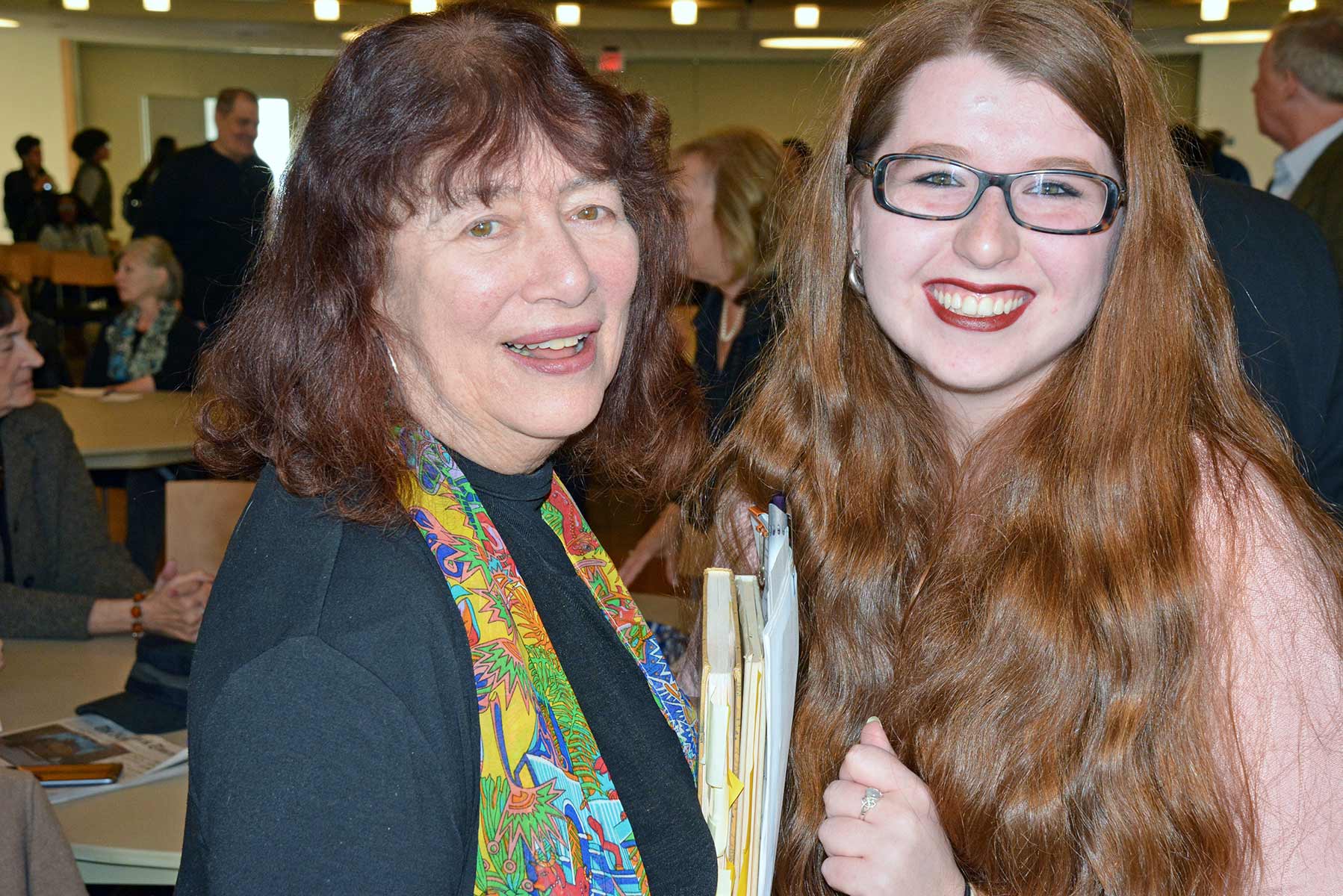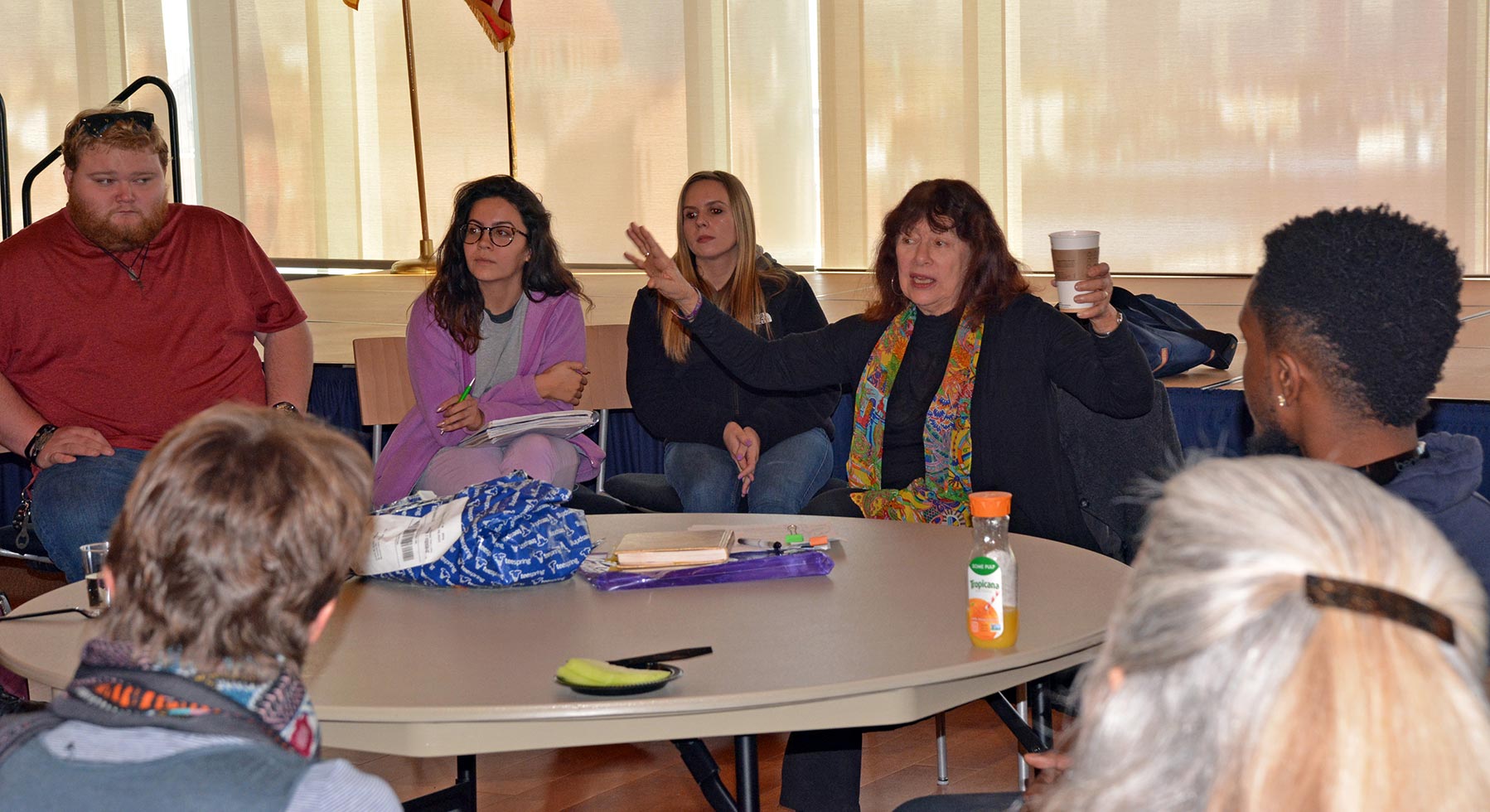 On November 14 in The Duncan Family Sky Room, students, faculty and staff enjoyed hearing the works of best-selling author Rosellen Brown as part of the Valente and Blihar Families Poetry Series. Following the reading was an intimate roundtable discussion with Brown.
On November 14 in The Duncan Family Sky Room, students, faculty and staff enjoyed hearing the works of best-selling author Rosellen Brown as part of the Valente and Blihar Families Poetry Series. Following the reading was an intimate roundtable discussion with Brown.
Gerard P. O’Sullivan, provost and vice president of academic affairs at Saint Peter’s University, introduced Brown saying that her works were poignant because of her ability to write about loneliness, alienation and her experiences as a Jewish woman living in non-Jewish neighborhoods. Her experiences residing in many different places in the United States including New York, Boston, San Francisco, Mississippi, New Hampshire and currently Chicago, shape her works. Brown has published ten books of differing forms including novels, short stories, poetry and essays. She spent more than a dozen summers leading the Spoleto, Italy Writers’ Workshop and has received numerous awards.
“Poetry slows down time,” she said, before reading excerpts from her first poetry book.
She also read from her Cora Fry series, in which the voice of a woman who is from a small New Hampshire town narrates. “These are working poems and they are rather bitter,” she said. The poems address the heartbreak and weariness the character of Cora Fry feels; she even refers to her husband as “Fry” in order to show their disconnect. Read Brown’s poem from the series titled, “Labors Lost, and Won; Pink Slip,” which was published in The New York Times.
After the reading, Brown sat down at a roundtable discussion with students, faculty and invited guests. She discussed her works and gave advice to aspiring poets. Brown advised them to read as much as possible. She also encouraged them to listen. “You have to listen to the world,” she said.
In addition, she revealed that her poems were in an invisible form called “syllabics.” In this form, every line has a specific amount of syllables, and she decides how many syllables each line will have before she writes the poem.
“I wanted Cora Fry to be bounded. She could not have more than a certain number of syllables per line,” Brown said. “It is almost like playing a game with myself.”
The event ended with the sentiment, “You read poems to return to yourself. You read poems to return to your life.”
The Valente-Blihar Family Distinguished Poets Series is generously funded by alumna, Judith Valente-Reynard, who is a renowned author and poet and makes regular contributions to PBS, NPR and the NPR affiliate in Illinois, WGLT
